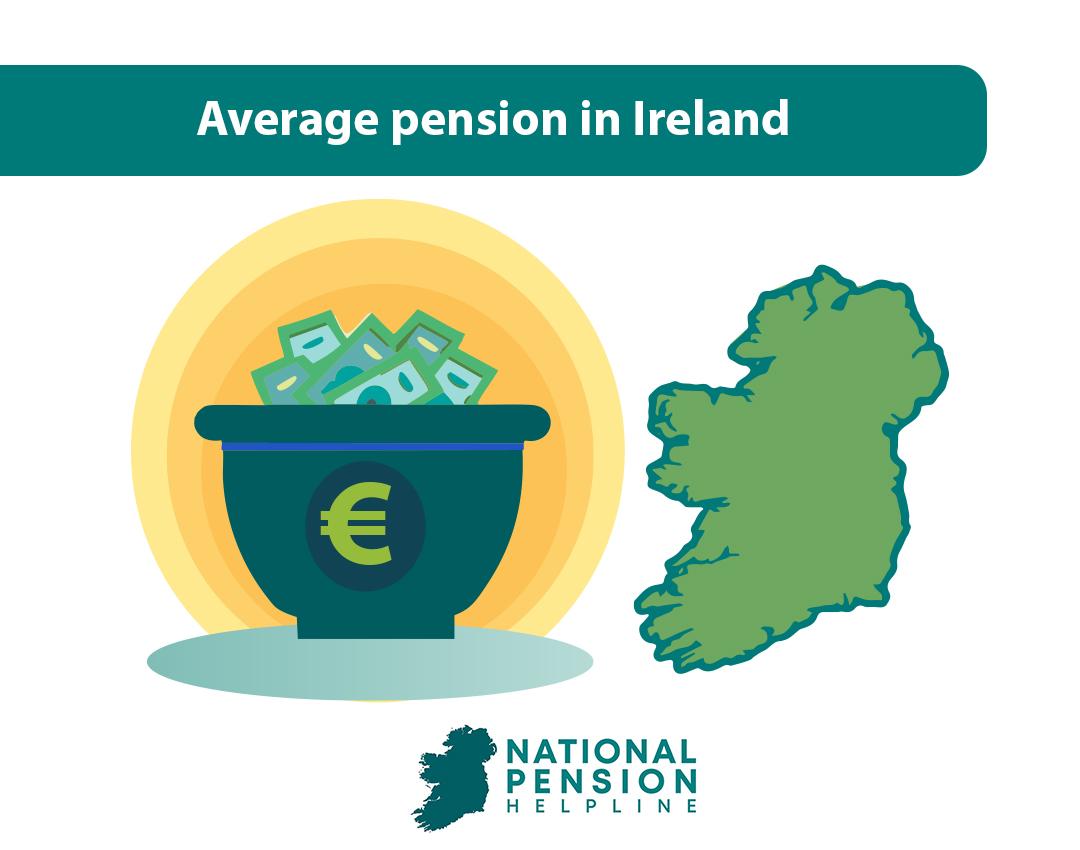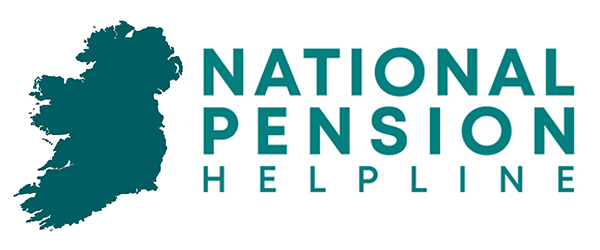What is the average pension pot in Ireland? How much should I have in my pension savings to retire comfortably? What will my income be in retirement?
The CSO reports that 66% of workers aged 20-69 have some form of pension coverage outside of the state pension. This has increased from 65% of workers in 2020 and 60% of workers in 2019. This suggests that awareness of retirement planning is increasing among the Irish population.
The average pension in Ireland is €111,000 in 2024.
This has increased in recent years but still falls short of being adequate to provide the 50% of your final salary advised by financial advisers as an optimal retirement income.
Table of Content
Types of pension in Ireland in 2024
There are three main types of pension in Ireland. These types of pension do not take into account other forms of retirement funding like assets eg. property or savings.
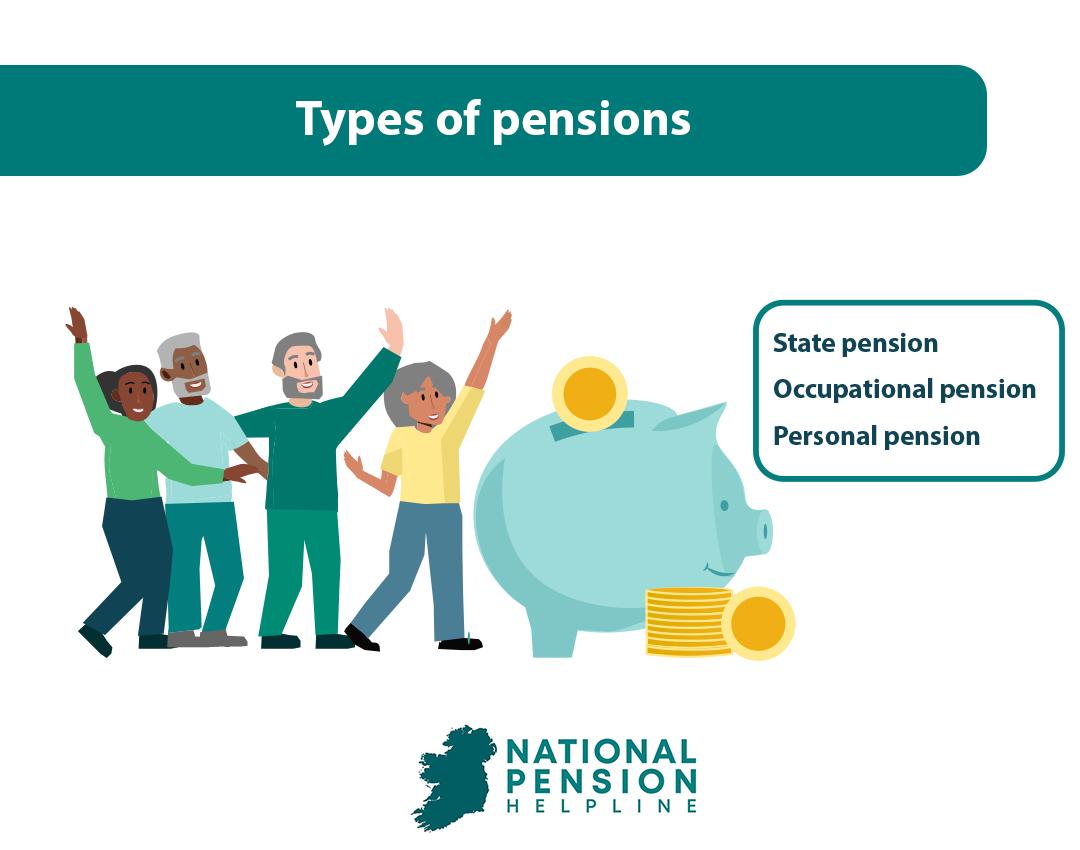
State pension
There are two types of state pension in Ireland at present. There is the state contributory pension an the state non contributory pension.
In Ireland you can qualify for a state pension from the age of 66 but recent changes mean that you can defer claiming a state contributory pension until the age of 70 if you need to accrue more contributions or to qualify for a higher pension payment on retirement.
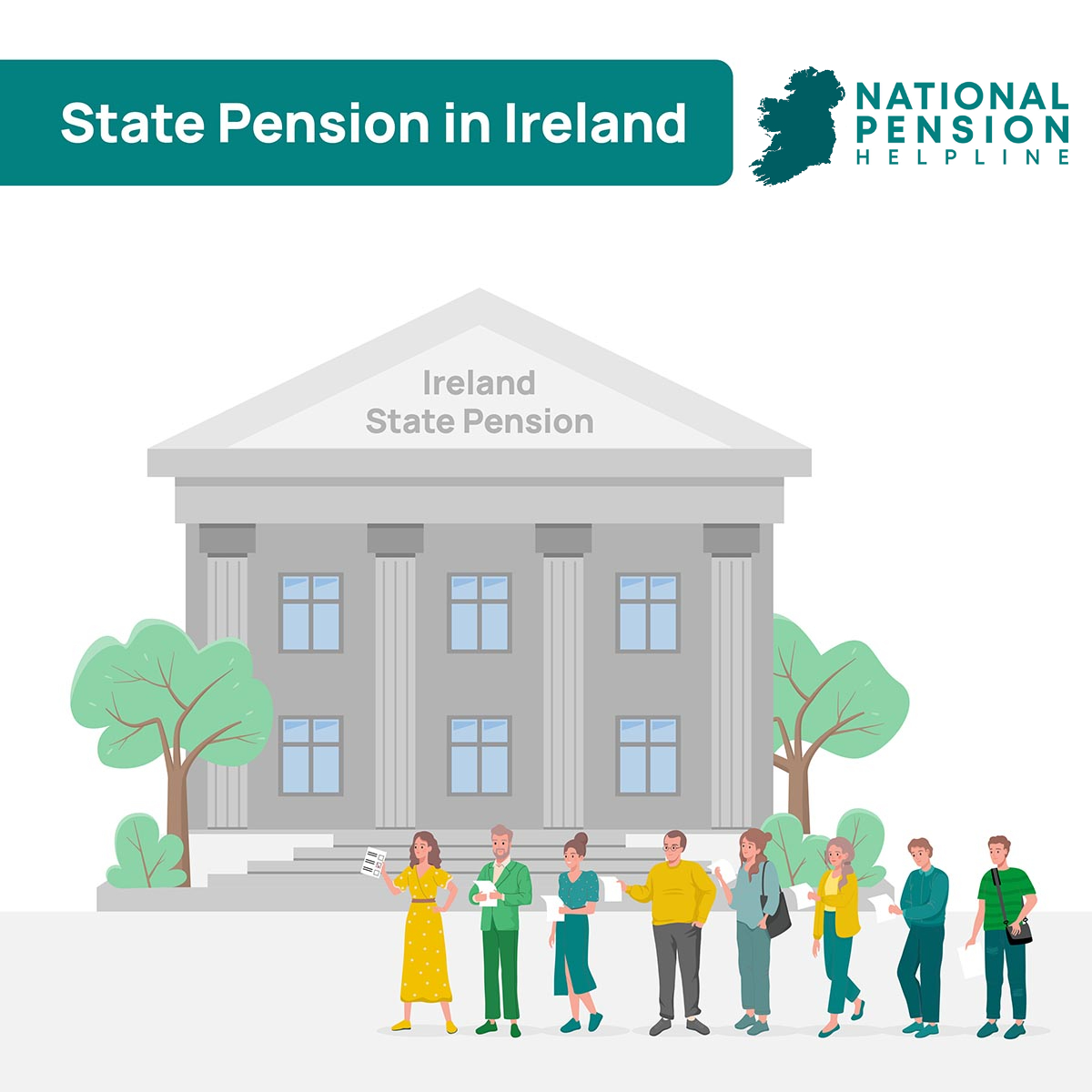
The state non-contributory pension
The state non-contributory pension is a means tested payment for Irish citizens which means that if you have income from any employment or other sources during retirement, including the value of assets other than your own home, they will be taken into account in calculating the amount you receive each week.
State contributory pension
The state contributory pension is not means tested which means that income from other sources will not affect your pension payment.
You will need to have made a minimum of 520 (10 years) PRSI contributions in order to qualify for a state contributory pension. The maximum rate of contributions is 2080 (40 years) which will qualify you for the maximum rate of payment on retirement.
Recent changes to the pension system have meant that time spent outside of the paid workforce as a home carer (up to 20 years) can be included in calculating your pension entitlement.
Currently, in February 2024, the maximum rate of state contributory pension for a single person is €277.30. The CSO estimates that 57% of workers without another form of pension provision expect a state pension to be their primary source of income in retirement.
Occupational Pension
An occupational pension scheme is one which is provided by your employer on retirement.
The pension is usually paid from a pension fund that has been contributed to by either the employee or the employer and the employee.
Occupational pensions may be contributory, where you and your employer contribute to the pension fund, or non-contributory where your employer alone contributes to the pension fund.
State employees’ pensions are not provided by a fund, but paid for from current government funds.
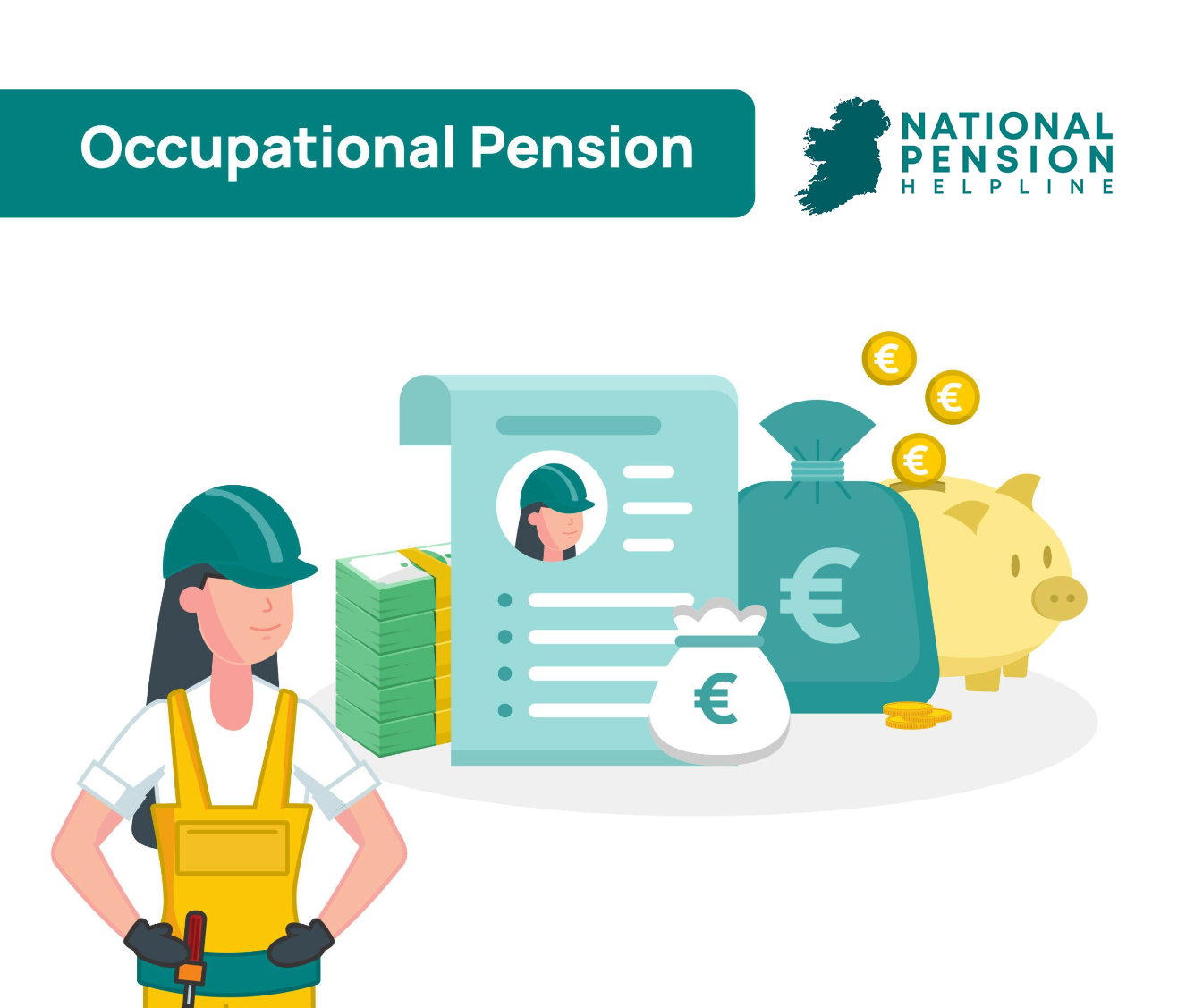
Defined benefit pension and defined contribution pension
With occupational pensions there is a further distinction between a defined benefit occupational pension and a defined contribution occupational pension.
With a defined benefit scheme, the employee will know in advance what benefit they will receive on retirement. It may be linked to length of service or a percentage of final salary, for example. Public service pensions tend to be defined benefit pensions.
With a defined contribution scheme, the benefit you receive is linked to the contributions that you make. This can leave an individual employee’s pension more vulnerable as it is linked to the performance of the pension fund and interest rates and market performance more generally.
A defined contribution scheme is more common. The CSO has estimated that defined benefit occupational pensions make up 32% of occupational pensions, whereas defined contribution schemes make up 32% of occupational pensions.
A new auto-enrolment pension scheme is to be introduced in Ireland later in 2024 administered by a Central Processing Authority which will see employees automatically enrolled in the pension scheme with their contributions matched by employers and topped up by the State.
The auto enrolment pension is intended to ensure that more employees save for retirement and to improve the pension coverage of the working population.
Personal Pension
A personal or private pension is a pension plan, usually offered by a life insurer or investment company, where an individual contributes to their own pension and which is managed by the insurance company or investment company.
Personal pension plans are usually chosen where someone doesn’t have an occupational pension or by those who are self employed.
A personal pension can be independent of employment and may be contributed to by a homemaker or someone who chooses to make pension provision independent of their employment.
A Retirement Annuity Contract (RAC) is type of defined contribution pension where money you save will be used to pay your pension when you retire.
A Personal Retirement Saving Account (PRSA) is, essentially, a type of pension savings investment account that allows someone to save for retirement.
With a personal pension, you can cash out your pension at 50 in the form of a tax free lump sum (up to €200,000).
Private pensions benefit from tax relief at the marginal rate of income tax, with the percentage of your salary you can save increasing with age. There is a maximum salary cap of €115,000 for income tax relief. Making contributions to a private pension are a tax efficient way to save for retirement.
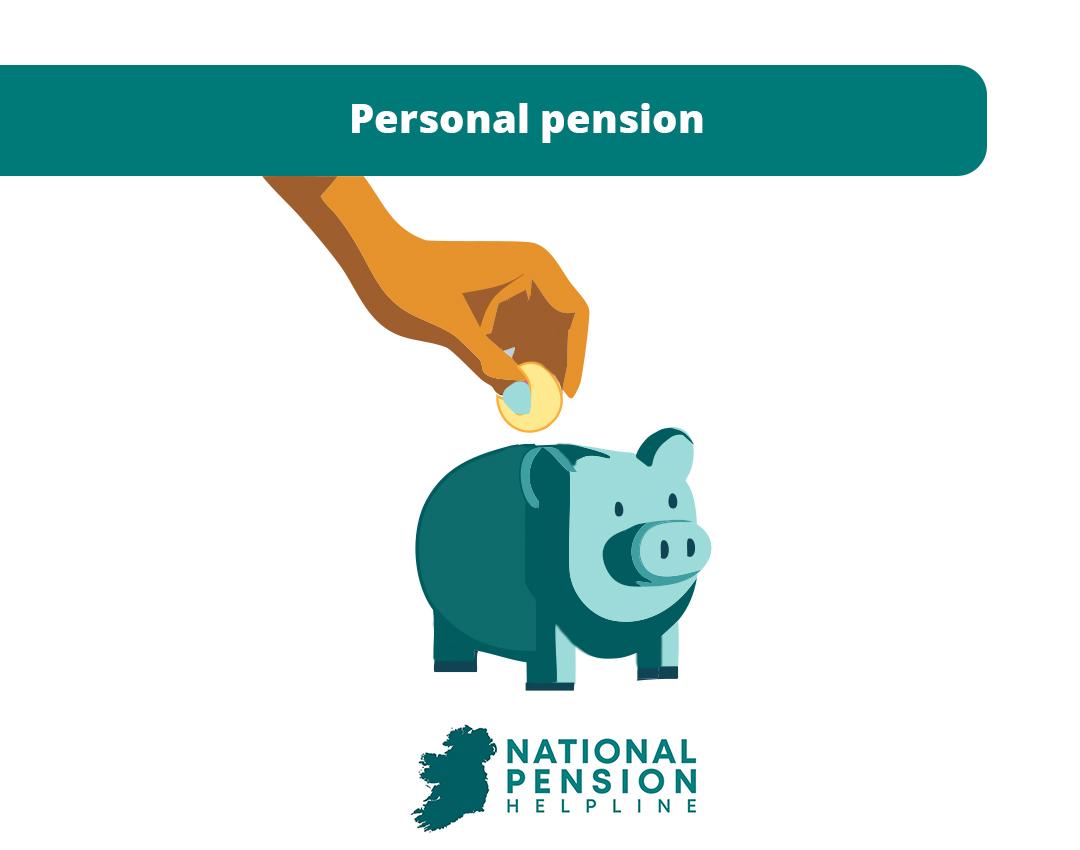
How much should I aim to have in my pension pot?
This amount is dependent on your final salary, as well as your aspirations or expectations around retirement. The type of expenses you expect to face, as well as the type of lifestyle you wish to enjoy will affect how much your pension pot should be.
There is wide disparity between the average pension in Ireland, €111,000, and the amount that respondents felt was desirable for financial security in retirement.
66% of respondents to the survey, when asked how much they would need to fund their retirement, chose either €200,000 or €500,000. The average respondents would like to have €433,000. This is obviously considerably higher than the current average.
The ideal amount to have as a pension pot increased with age.
At 30, you should have 1x your salary in your pension pot.
At 40, you should have 3x your salary.
At 50, you should have 5x your salary.
At 60, you should have 8x your salary.
At 67, you should have 10 x your salary.
Income tax and pensions
In Ireland contributions to a private or occupational pension benefit from tax relief at the marginal rate of income tax that you pay.
Irish contribution limits for income tax relief for pension contributions bear out the idea that your pension contributions should increase as you age as the percentage of your salary that you can contribute with tax relief increases with age.
| Age | Contribution Limit |
|---|---|
| <30 | 15% |
| 30-39 | 20% |
| 40-49 | 25% |
| 50-54 | 30% |
| 55-59 | 35% |
| 60+ | 40% |
On retirement, you can receive a tax free lump sum of up to €200,000.
Your pension payments are subject to income tax. However, many pensions are below the level of income that is subject to income tax.
Factors that affect how much your pension will be.
There are several factors which will affect how much your pension pot will be.
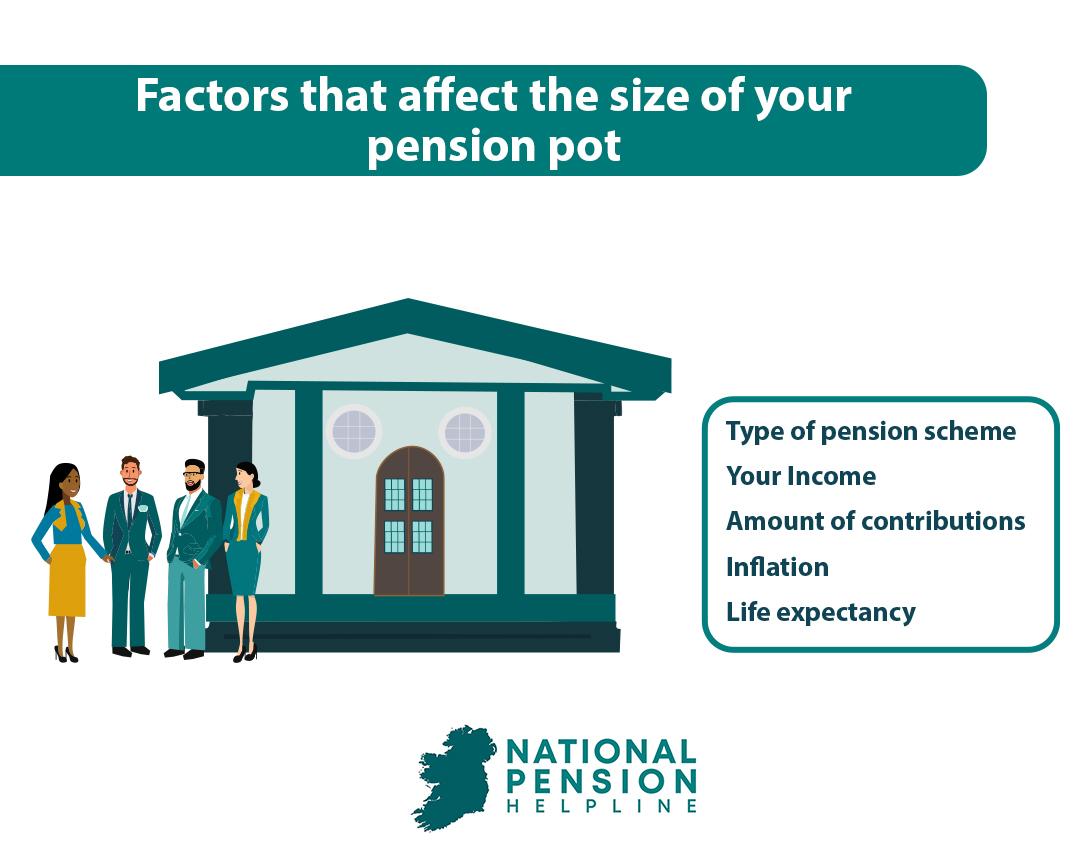
Contact us today
The National Pensions Helpline is a free service offering pension information and support. Contact us today and we will look at your options with you and advise you, whatever your individual circumstances and financial goals.
Take control of your financial future and make informed decisions with our service. Our advisers can carry out a full pension review with you so that you can plan for when you reach retirement.

